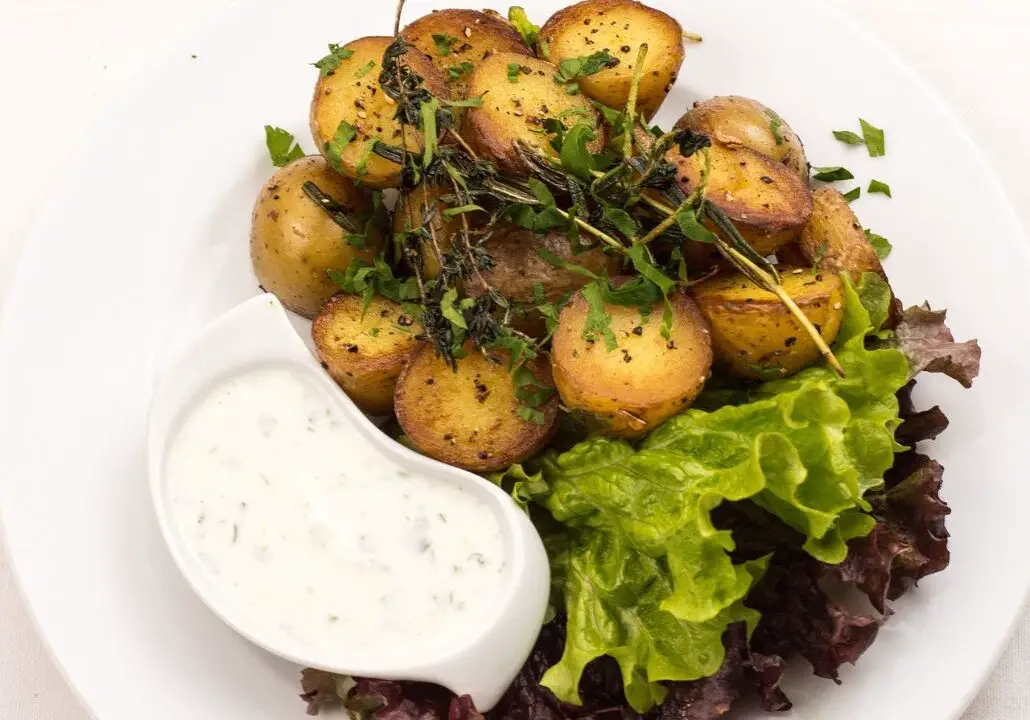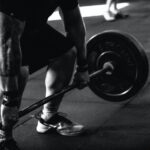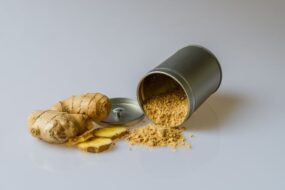
Table of Contents (click to expand)
The Humble Potato
Welcome to your comprehensive guide on how to cook potatoes for weight loss. Potatoes are a food staple loved by many, but they’re often misunderstood in their role in a weight loss journey.
This article will not only dispel those misconceptions but also enlighten you on the multiple benefits that potatoes can offer in your quest for weight loss.
The Misunderstood Gem in the Weight Loss Journey
Potatoes are frequently overlooked and even demonized in the realm of healthy foods. Their high carbohydrate content has led many to believe they are a no-go zone for those trying to shed weight.
However, this view oversimplifies the complex nutritional offering that potatoes have to provide. With their essential vitamins and minerals, high fiber content, and promotion of gut health and metabolic regulation, potatoes can play a supportive role in weight management when consumed in moderation and prepared healthily.
Related: How to Weigh Food for Weight Loss to Reduce Content Size
Nutritional Benefits of Potatoes
Potatoes are an excellent source of vitamin C, an essential nutrient for immune function and skin health. They also boast substantial amounts of potassium, which can help regulate blood pressure and promote heart health. Moreover, potatoes are rich in soluble fiber, which aids in digestion and can help you feel fuller for longer.
This increased satiety can help curb overeating and subsequently aid in weight loss. An often overlooked benefit of potatoes is the presence of resistant starch, especially in cooked potatoes and cooled boiled potatoes. This type of starch aids digestion promotes feelings of fullness, and might even enhance fat burning.
Understanding the Glycemic Index of Potatoes
Potatoes’ glycemic index (GI) varies depending on the type and cooking method. For instance, sweet potatoes have a lower GI than white potatoes, meaning they’re less likely to spike blood sugar levels.
Furthermore, cooking methods that involve cooling the potato, like boiling and refrigerating, can lower the GI by increasing resistant starch content. Therefore, learning how to cook potatoes properly is a culinary skill and can favorably impact weight loss.
Potatoes and Weight Loss
Potatoes’ Role in a Weight Loss Diet
It’s crucial to understand that no single food will cause weight gain or loss. It’s the overall pattern of your diet and lifestyle that matters. In a balanced weight-loss diet, potatoes can undoubtedly find their place.
When cooked healthily and consumed in moderation, they can provide essential nutrients without pushing your caloric intake into the weight gain zone. It’s all about knowing how to eat potatoes healthily, contributing to your weight loss efforts.
Related: Do You Lose Weight When You Sweat?
Why Eating Potatoes Can Help You Lose Weight
The resistant starch in potatoes aids digestion and promotes feelings of fullness, helping curb overeating. This can result in fewer calories consumed overall, leading to weight loss.
Cooled boiled potatoes have one of the highest satiety ratings of all foods. This means they are particularly good at making you feel full and satisfied, which is incredibly beneficial when trying to lose weight.
Dispelling the Myths Surrounding Potatoes and Weight Gain
One of the most persistent myths about potatoes is that they lead to weight gain. In reality, it’s not the potatoes themselves but rather the standard methods of preparation that can turn them into high-calorie food. Mashed potatoes laden with butter and cream, deep-fried potato chips, and French fries are high in added fats and calories.
Therefore, it’s essential to remember that the cooking method significantly influences the final product’s nutritional profile. For instance, boiled or roasted potatoes with minimal added fats are much healthier than French fries or potato chips.
Cooking Methods: How to Cook Potatoes for Weight Loss
The Importance of Cooking Potatoes Right
Learning to cook potatoes for weight loss involves understanding that the type of potato and the cooking method will significantly affect the meal’s final calorie and nutrient content.
Some cooking methods can minimize nutrient loss, maximize resistant starch formation, and limit the need for high-calorie additions like butter and sour cream.
How Cooking Affects the Nutritional Content of Potatoes
Different cooking methods can alter the nutritional profile of potatoes. For instance, boiling potatoes can reduce their vitamin C content due to the water-soluble nature of this vitamin. However, the process also increases resistant starch, particularly when the boiled potatoes are cooled.
On the other hand, roasting potatoes at high temperatures can concentrate nutrients in boiled potatoes by reducing the water content. It can also create a delightful texture with a golden brown crust and a soft interior without deep frying.
The Impact of Cooking Temperature on Potatoes’ Healthiness
The cooking temperature can significantly affect the final healthiness of your prepared potatoes. Lower temperature methods like boiling preserve more vitamins but can lead to a higher glycemic index.
Conversely, high-heat methods like roasting or baking can make potatoes crispy and delicious without adding unhealthy fats, helping you create a potato dish that’s both satisfying and suitable for your weight loss goals.
Related: How Long Does it Take to Lose Weight When Lifting Weights?
Boiled Potatoes: A Weight Loss Friendly Method
The Benefits of Boiled Potatoes for Weight Loss
Boiled potatoes are an excellent choice for those seeking to lose weight. This cooking method is simple, quick, and does not require the addition of oils or fats, keeping the calorie content low.
Furthermore, as previously mentioned, boiling potatoes increases their resistant starch content, particularly when cooled. This can contribute to increased feelings of fullness, better blood sugar control, and enhanced digestive health, all of which can support weight loss.
Preparing and Cooking Boiled Potatoes
Preparing and cooking boiled potatoes is relatively straightforward. First, thoroughly scrub your potatoes under cold running water to remove dirt or debris.
If you prefer, you can peel the potatoes but remember that much of the fiber and some nutrients are concentrated in the skin. Then, cut the potatoes into uniform sizes for even cooking. Place the cut potatoes in a large pot, cover with cold water, and bring to a boil.
Cook until the potatoes are tender when pierced with a fork, then drain.
Enhancing the Flavor of Boiled Potatoes Without Adding Calories
Even though boiled potatoes are low in calories, they don’t have to be lacking in flavor. Enhance your boiled potatoes with herbs and spices, which add negligible calories. For example, try adding a sprinkle of garlic powder, onion powder, or black pepper.
Fresh herbs like dill, parsley, or chives can also be a fantastic way to add a pop of flavor. A dash of cayenne or paprika can be delightful if you prefer a spicy kick. These additions will help ensure that your potatoes are healthy and delicious.
Mashed Potatoes: A Classic Dish Made Weight Loss Friendly
The Potential of Mashed Potatoes for Weight Loss
Mashed potatoes are a comfort food favorite for many, and the good news is that they don’t have to be off the menu just because you’re trying to lose weight.
By making smart swaps to potato recipes, you can create a version of mashed potatoes that is creamy, satisfying, and compatible with your weight loss goals.
How to Prepare Healthy Mashed Potatoes
To prepare healthy mashed potatoes, boil them until they’re tender. Then, instead of adding the traditional butter and cream, opt for healthier alternatives. Add a dollop of Greek yogurt or a splash of low-fat milk for creaminess.
For richness, a small drizzle of olive oil can do the trick. As with boiled potatoes, adding herbs and spices can enhance the flavor of baby potatoes without increasing the calorie count.
The Role of Portion Control in Eating Mashed Potatoes
While making healthier mashed potatoes is possible, keeping portion control in mind is also crucial. It’s easy to overeat this tasty dish but remember that even healthy foods can contribute to weight gain if consumed in large quantities.
Aim for a serving size equivalent to one medium potato, and round out your meal with lean protein and plenty of non-starchy vegetables to ensure balance.
Related: How much weight can you lose in 2 months?
Roasted Potatoes: A Delicious, Healthy Alternative to French Fries
The Benefits of Roasted Potatoes for Weight Loss
Roasted potatoes can be a delicious, healthy alternative to deep-fried or French fries.
This cooking method can create a crispy exterior and a fluffy interior, offering a satisfying texture that can make your meal feel more enjoyable. Plus, roasting can enhance the natural flavors of potatoes, allowing for adding various herbs and spices to create an array of taste profiles.
Preparing and Cooking Roasted Potatoes
Preheat your oven to a high temperature (around 400-450°F, or 200-230°C) to prepare roasted potatoes. Then, clean your potatoes and cut them into even pieces.
Toss the potatoes in olive oil and your chosen seasonings, then spread them on a baking sheet. Bake until the potatoes are golden brown and crisp, turning them occasionally for even browning.
Healthy Seasoning Ideas for Roasted Potatoes
When it comes to seasoning roasted potatoes, the options are virtually endless. Some popular choices include garlic powder, onion powder, rosemary, thyme, paprika, black pepper, and sea salt.
You could also try something a little different, like a sprinkle of nutritional yeast for a cheesy flavor, a dusting of curry powder for a warming spice, or a zesty blend of lemon zest and black pepper. Experiment to find your favorite flavor combinations.
Combining Potatoes with Other Foods
The Benefits of Pairing Potatoes with Protein
While potatoes can provide fiber and essential nutrients, pairing them with a source of protein can enhance their satiety factor even further.
Protein is known for providing long-lasting energy and reducing feelings of hunger. Therefore, having some lean protein with your potatoes can help keep you full longer and may reduce the likelihood of overeating later in the day.
Creating Balanced Meals with Potatoes
Creating balanced meals is crucial for a healthy weight-loss diet. Aim to fill half your plate with non-starchy vegetables, a quarter with lean protein, and a quarter with starchy foods like potatoes.
This ensures you’re getting a good mix of nutrients while keeping your calorie intake in check. You could pair your potatoes with grilled chicken, fish, or a plant-based protein source like lentils or tofu, along with a generous serving of vegetables.
Portion Control and Potatoes
The Importance of Portion Control
While we’ve discussed how you can cook potatoes for weight loss and highlighted their potential health benefits, it’s essential to address the importance of portion control.
Eating too many potatoes can contribute to weight gain even with the healthiest cooking methods. Therefore, mindful of your serving sizes is crucial to incorporating potatoes into a weight-loss diet.
Practical Tips for Portion Control
One practical tip for portion control is to use smaller plates or bowls. This can help your portion of potatoes (and any other food) seem larger.
You can also use measuring cups or a food scale to ensure you’re not overestimating your serving sizes. Remember that a serving of potatoes should be about the size of your fist.
Conclusion
Learning to cook potatoes for weight loss can be a game-changer for your diet. When prepared healthily and consumed in moderation, potatoes can certainly be part of a balanced weight-loss diet.
They offer a wealth of nutrients and can be cooked in various ways to keep your meals exciting and flavorful. Whether boiled, mashed, or roasted, there are plenty of ways to enjoy this versatile vegetable while working towards your weight loss goals.
So don’t shy away from potatoes – embrace them as part of your journey towards a healthier you.
Frequently Asked Questions
Can You Eat Potatoes and Still Lose Weight?
You can eat potatoes and still lose weight. It’s essential to remember that weight loss occurs when you consume fewer calories than you burn, so portion control is critical.
If you’re mindful of your serving sizes and prepare your potatoes healthily (i.e., minimal added fats), they can fit into a weight loss diet.
What is the Healthiest Way to Cook Potatoes?
The healthiest way to cook potatoes largely depends on your dietary needs and goals. Boiling is a beneficial method as it doesn’t require added fat. However, it can lead to a loss of some water-soluble vitamins.
Roasting or baking at high temperatures can concentrate the potato skins’ nutrients and create a satisfying texture without deep frying or adding unhealthy fats.
Can I Eat Potatoes While Trying to Lose Belly Fat?
Yes, you can eat potatoes while trying to lose belly fat. While you can’t target fat loss to specific areas of the body, adopting a diet that leads to overall weight loss will also reduce belly fat.
When prepared and portioned appropriately, potatoes can be part of a balanced diet that supports weight loss.
Related: How to Consume White Vinegar for Weight Loss: 20 Simple Ways
Is Baked Potato Healthy for Weight Loss?
A baked potato can be healthy for weight loss if it’s prepared without lots of added fats and is portioned appropriately.
While baking can slightly reduce vitamin C content due to the heat, this cooking method can also create a satisfying texture and enhance the sweet potato’s natural flavors. Just be mindful of the toppings – opt for healthful additions like a dollop of Greek yogurt, a sprinkle of herbs, or some steamed vegetables.





































